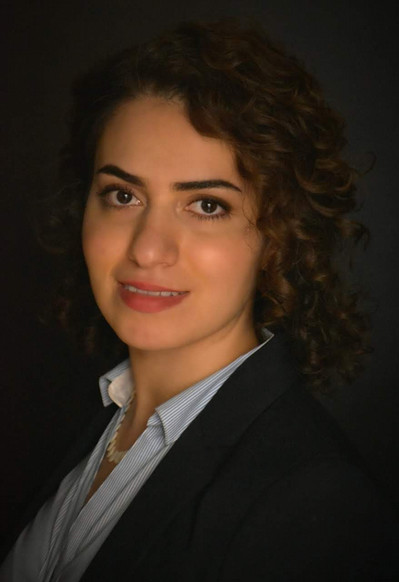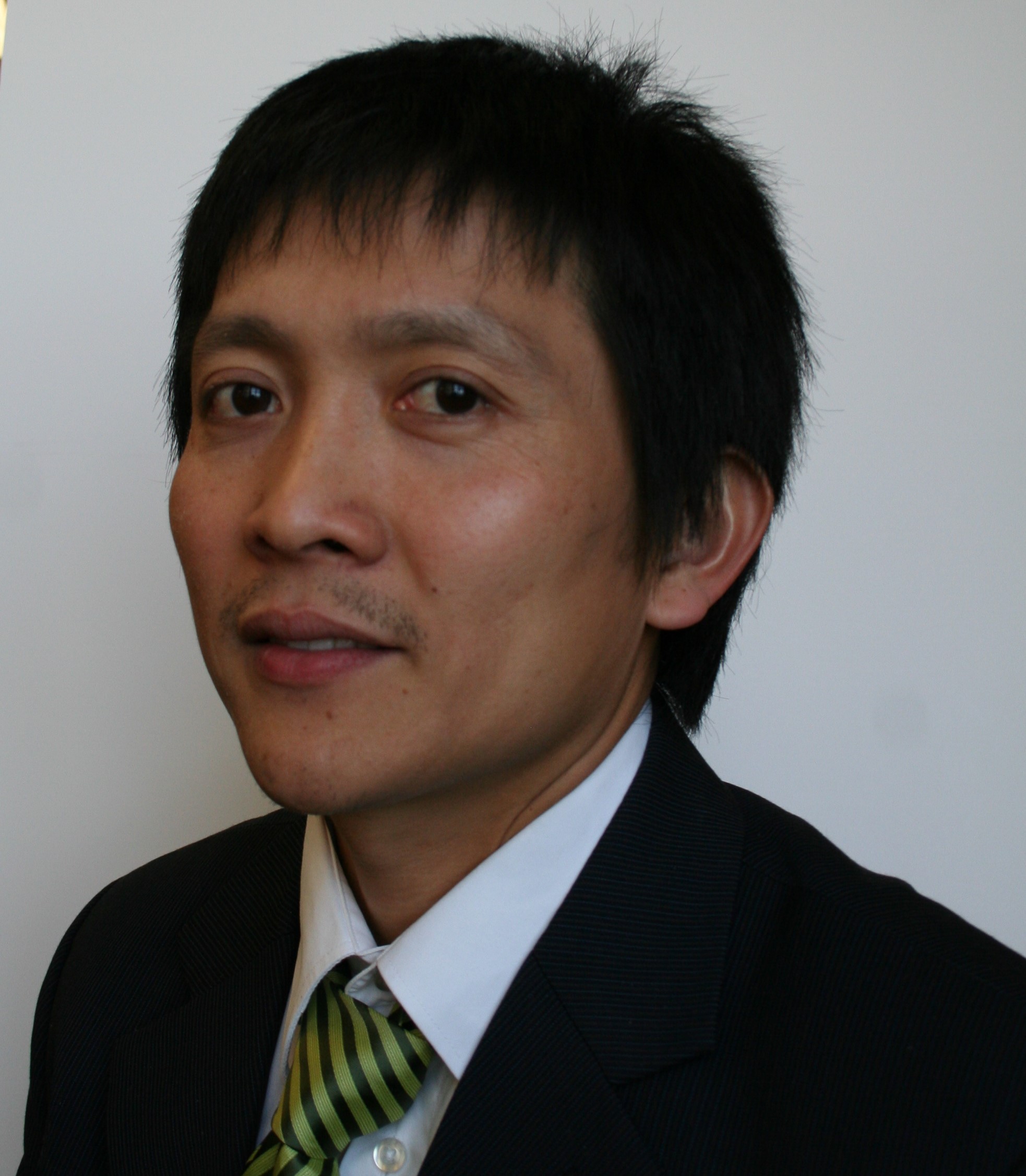Posted on October 26, 2021 by The Graduate School
This fall, The Graduate School unveiled a new award targeted at recognizing our postdoctoral fellows: the Outstanding Postdoctoral Scholar Award. This annual award is presented to two postdoctoral scholars at UTSA who demonstrate excellence in research, communication, and leadership. For more information about the nomination process and eligibility requirements, please visit our website.
The Graduate School is excited to announce the inaugural winners of the Postdoctoral Scholar award: Solaleh Miar and Duc Phan. Drs. Miar and Phan have made excellent contributions in their respective fields, and we are pleased to introduce you to them now.
Dr. Solaleh Miar
Dr. Miar, a two-time UTSA alumna, was recommended for award consideration by Dr. Teja Guda, Associate Professor in Biomedical Engineering and Jacobson Distinguished Professor in Innovation and Entrepreneurship. In Dr. Guda’s recommendation letter, he stated, “Dr. Miar has been an exceptional trainee and an inspired research scientist. Her maturity, attention to detail, thorough review of the literature and very well considered experimental design have allowed her to keep her doctoral research on track while also simultaneously managing multiple other projects within the group.”
Learn more about Dr. Miar’s academic journey, research, and future plans in her own words below.
What has your academic journey been to this point, getting to the post-doctoral position at UTSA?
I joined the roadrunner community as a master’s student in 2014, with a background in materials science and engineering. I continued my graduate studies by joining the UTSA-UTHSA joint Ph.D. Biomedical Engineering program and worked under the supervision of Dr. Teja Guda in developing biomaterials for translational applications. After graduating from the Ph.D. program, I continued my research journey at UTSA on a collaboration with laryngologist Dr. Gregory Dion to look into those translational applications of my doctoral research, bringing my journey from bench to bedside.
What area of research do you work on?
My research has been focused on instructive biomaterials design for tissue regeneration and novel drug delivery systems. My doctoral research is broadly focused on stimulus-responsive soft biomaterials. My post-doctoral research at UTSA has mainly focused on biomaterials translation for smart drug delivery and targeted tissue regeneration in the upper airway, using large animal preclinical studies to advance the state-of-the-art.
The pandemic has disrupted status quo across campus - what have your interactions been with the campus community during the post-doc?
My research has focused on upper airway disorders, especially for people who go under prolonged intubation in intensive care units. After the pandemic, my research became extremely applicable to address the long-haul recovery from side effects of COVID-19 infection for people placed on ventilator support. It is a unique opportunity under trying circumstances, but also one that underlines the sometimes immediate social (and medical) impacts of one's work.
Where do you see your future academic path taking you in 3 years?
I would like to pursue a career in academia and advance my research in translational drug delivery and tissue regeneration approaches to address pressing problems in biomedicine. This would give me an opportunity to conduct better outreach to disseminate information about innovative research more broadly and to educate and mentor the next generation of engineers, scientists, and the general public.
Dr. Duc Phan
 Dr. Phan, who graduated from UTSA in fall 2020, was nominated by Dr. Vikram Kapoor, Assistant Professor in UTSA’s Department of Civil and Environmental Engineering. In his recommendation letter, Dr. Kapoor states, “I have seen Dr. Phan apply his intelligence and strong work ethics towards becoming a competent, thoughtful, and creative research scientist who I am confident will continue his trajectory for success in the environmental science and engineering field as a productive member of the scientific research community.”
Dr. Phan, who graduated from UTSA in fall 2020, was nominated by Dr. Vikram Kapoor, Assistant Professor in UTSA’s Department of Civil and Environmental Engineering. In his recommendation letter, Dr. Kapoor states, “I have seen Dr. Phan apply his intelligence and strong work ethics towards becoming a competent, thoughtful, and creative research scientist who I am confident will continue his trajectory for success in the environmental science and engineering field as a productive member of the scientific research community.”
You can read more about Dr. Phan’s experiences and research in his own words below.
What has your academic journey been to this point, getting to the post-doctoral position at UTSA?
I got my Bachelor of Science degree from Hanoi University of Science and Technology in Hanoi, Vietnam. I then obtained two Masters of Science degrees from Seoul National University in Seoul, South Korea, and Johns Hopkins University respectively before joining UTSA for my PhD studies. I graduated in December 2019, not so long before the COVID-19 pandemic hit. I returned to UTSA to work primarily on the COVID-19 surveillance in wastewater projects.
What area of research do you work on?
As a postdoctoral researcher at UTSA, my main focus is using wastewater-based epidemiology (WBE) to monitor pathogenic transmission in wastewater. Particularly, we monitor COVID-19 in municipal wastewater at several wastewater treatment plants in City of San Antonio and in several school campus’s wastewater. Besides that, I also work on several microbial source tracking (MST) and water quality projects.
The pandemic has disrupted status quo across campus - what have your interactions been with the campus community during the post-doc?
Obviously, the pandemic has changed everything. Even though I still spent most of my time on campus, my face-to-face interaction with the campus community was limited. Instead of in-person interactions, more virtual interactions happened with my collaborators and peers at UTSA, as well as many researchers all over the world through online meetings and conferences.
Where do you see your future academic path taking you in 3 years?
I want to become a research scientist in a National Lab or as a professor in my field.

